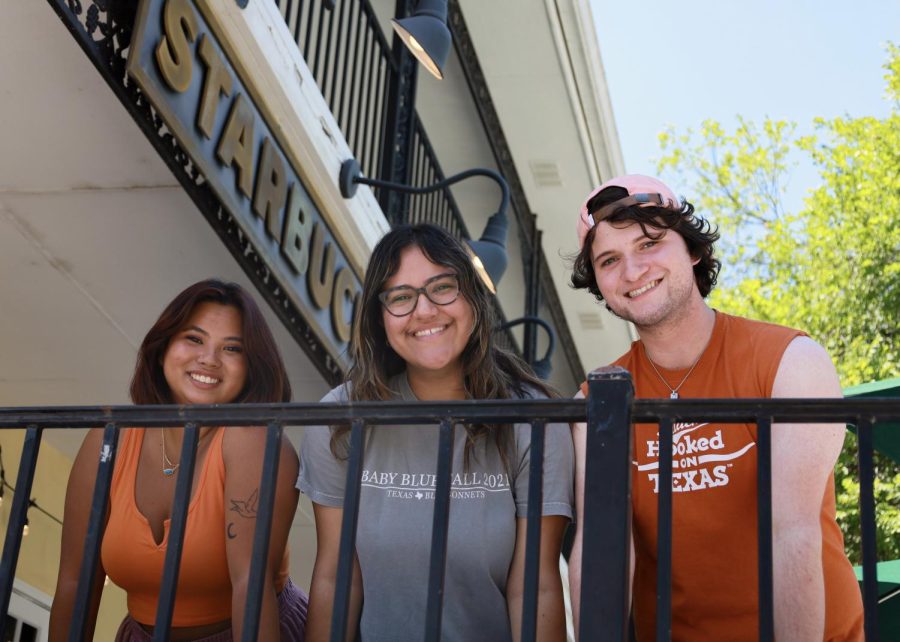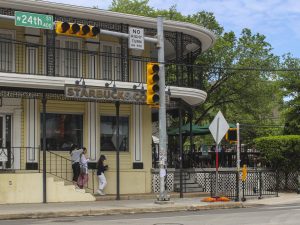West Campus Starbucks becomes second store in Texas to unionize, prepares to bargain with company
Amanda Garcia, Marwa Sultani, and Quincy Martin stand outside of the Starbucks on 24th and Nueces in West Campus on Friday, June 10 moments after the location voted in favor of unionizing. Garcia, Sultani, and Martin are part of the largely student employee backed campaign that has been pushing for a labor union over the past several months.
June 16, 2022
A West Campus Starbucks became the second store in the state and city to officially unionize with a vote of 10-2 on Friday — exactly one week after another Austin store won its union election.
“(I’m) looking back at how far we’ve come and celebrating, but also knowing there’s so much work to do,” organizing employee Lillian K. Allen said.
The West 24th and Nueces Street store now joins about 140 others across the nation that have won union elections. The votes counted Friday indicated whether or not employees were in favor of a union.
Now, employees must decide whether or not to join the union since Texas is a Right-to-Work state, meaning individual employees are not required to join the union and pay dues. Then, employees will come up with their demands and begin negotiating a contract with Starbucks.
Allen said they plan to survey employees to get a concrete idea of what demands the employees have.
Amanda Garcia, an organizing employee, said she expects their demands to be similar to the ones in the letter announcing their intent to unionize.
“I think first and foremost, the priority would be to advocate for living wages,” sociology junior Garcia said. “Especially because a lot of us are students, and it’s hard for us to support ourselves without working 40 hours a week (and) also being full-time students.”
Starbucks is required by The National Labor Relations Act to bargain a contract with unionized stores in “good faith.” When Starbucks CEO Howard Schultz was asked if he could ever see himself “embracing the union,” he responded, “No” during a live interview with The New York Times on Friday. Starbucks did not respond to a request for comment.
Natalie Wittmeyer, an employee at the nation’s first Starbucks to unionize in Buffalo, N.Y., said Starbucks has been “stalling” in the contract negotiations with her store. She said her store has been trying to bargain for a contract for roughly six months.
“We have submitted to (Starbucks) probably five or six lists of proposals,” Wittmeyer said. “Starbucks has only sent us back one written response, which was their proposal for management rights. (This) really wasn’t in conversation with what we had already submitted to them.”
Rebecca Givan, associate professor of labor studies and employment relations at Rutgers University in New Jersey, said it is common for companies to slow negotiations to draw out the unionization process as a “part of the anti-union playbook.” Givan said her advice for Starbucks employees is to continue to organize, not just locally, but nationally.
“By continuing to talk to their co-workers within stores and then their co-workers nationally, they’re understanding just what the Starbucks strategy is and what they’re up against,” Givan said.
Allen said he and other organizers at his store have been in conversation with other Starbucks employees across the country to exchange ideas for bargaining proposals.
“On the national level, what we all want is to get Starbucks to play ball, to come to the table and to bargain fairly with the stores that have already won their union elections,” Allen said. “That’s what we want: nationwide recognition and respect and true partnership as a union.”














